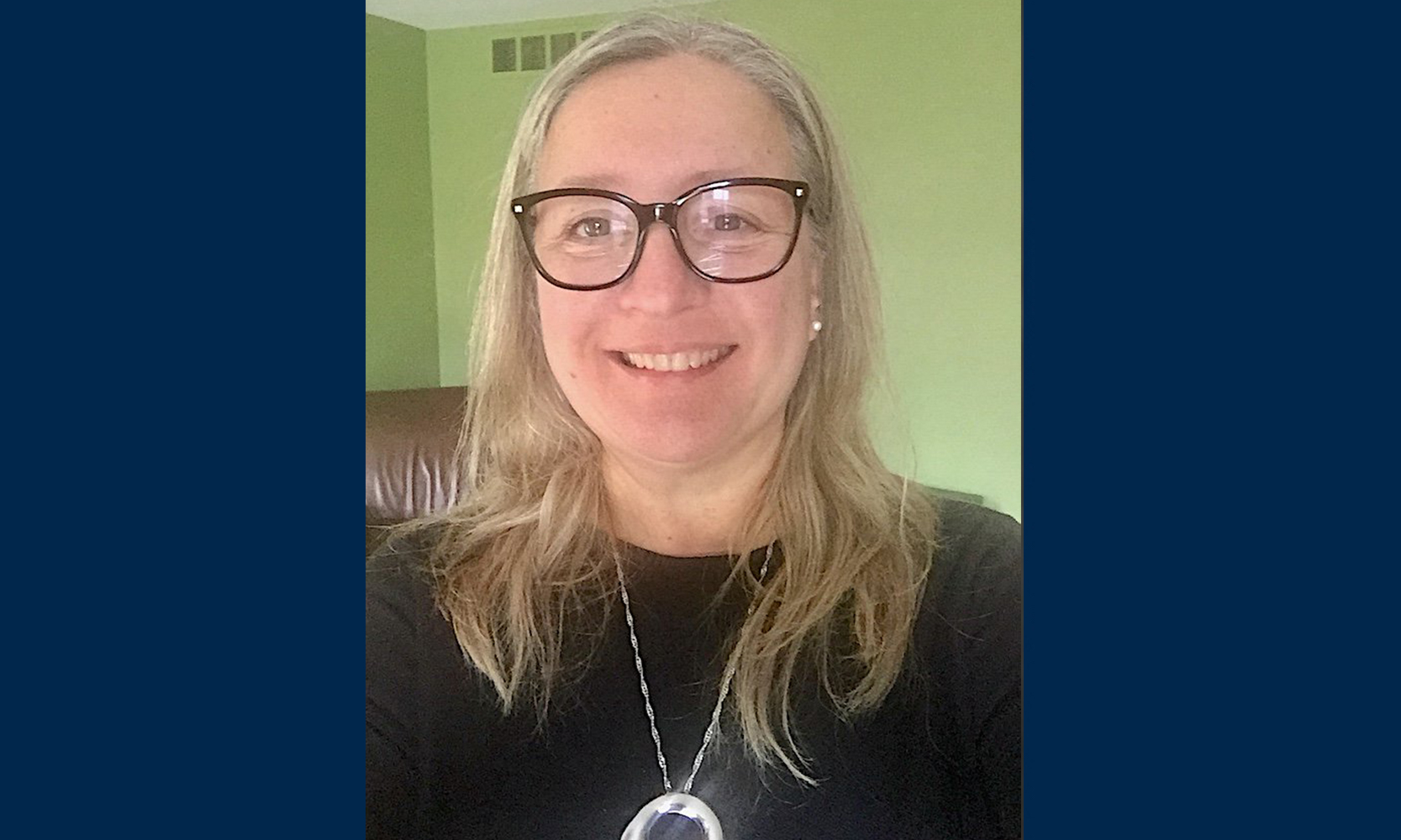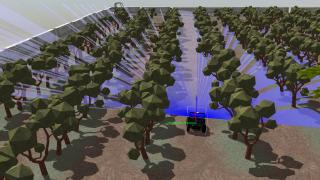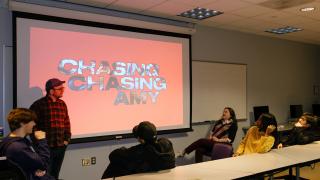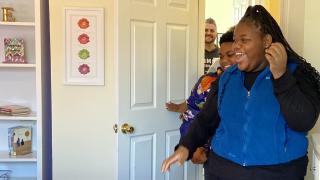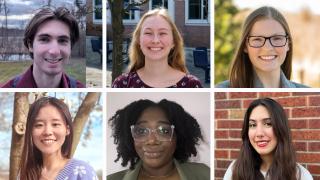
To help students prepare for finals, Philosophy Professor Maureen Linker — along with other professors across campus — answered student questions and reviewed papers during the library’s The Finals Jam! To help teach logic, she had Monty Python skits ready to go. As a de-stressor, Play-Doh was on the table and a tongue-in-cheek nod to the Greek philosopher.
Linker, who had a role in creating the Finals Week initiative, says the goal of the library’s new programming is to let students know that the library — and the people within it — are there to give students the support, academic and otherwise, needed to pursue their goals. Students have taken notice. At “The Finals Jam!” described above, several hundred took part; nearly 40 students came to the philosophy session alone.
Settling back in for the Winter 2020 semester, Reporter recently spoke to Linker about the library’s focus in the new year, her latest reads and the difference a good librarian can make in your life.
This might be a predictable question for a library director, but what’s the last book you read? Where are the Women?
Why Expanding the Archive Makes Philosophy Better by author Sarah Tyson. When we think of philosophy in a general sense, if we think of it at all, our minds typically go to the ancient Greeks — you know, old guys in togas. This book goes back through history and talks about women in Western philosophy and their contributions. It also does a nice job explaining why including women writers in the canon of philosophy improves our understanding of the three main power areas in culture — education, economics and religion — both historically and today. I’m including it in my Winter 2020 Feminist Philosophy course.
Obviously you spend a lot of time in the library today. Did you as a child too?
Yes. I grew up in Brooklyn and my home library was in Grand Army Plaza. It’s a great library. But not just because of the place, but also because of the people. When I was young, I really liked astronomy. I remember telling that to a librarian there, who guided me to books on how the constellations got their names through Greek myths. I remember the librarian saying to me that time changes so much — but the sky we look at today is the same sky the ancient Greeks looked at. That statement made me feel a real connection to ancient history.
I also had a very good school librarian growing up, Brother Stanislav. When I was 8 or 9, I was curious about World War II. He guided me to The Diary of Anne Frank. Later, he recommended When Hitler Stole Pink Rabbit. I was learning about World War II, but also about resistance efforts and heroic ethical actions people took. I have to believe those librarians guiding me to those books helped grow interests of mine that eventually led me to philosophy.
Do you visit libraries when you travel? If so, can you share a favorite one?
Yes, I do. The one that sticks out is George Washington’s personal library in Mount Vernon. My friend is a historian who was doing a special project at Mount Vernon and I was able to go and see it. The library is in the inner sanctum of his home — there was a special key needed to get into this interesting circular room. Many of the books were in the same order as they were when he died. I also learned that he had several copies of Don Quixote, a story about an optimistic fool, because it was his favorite book. There was a copy gifted to him from the King of Spain.
You’ve taught here for more than 20 years, so you’re familiar with campus. But what’s something about the library that you didn’t realize until you stepped into the director role?
How crowded the library is at night and on weekends. We have 400 students on weeknights and more on Sundays. We are traditionally a commuter campus, so I thought many of my students studied at home. But they are here. That’s what I want faculty to know — if you are ever looking for a student, the odds are good that you’ll find them in the library. If you have the time, please come by. It would mean so much for your students to see you here.
Now that you are officially the director, do you have any library goals you’d like to share?
It’s not a secret that we feel it’s time for the library to undergo a major renovation, but something we’ve learned from doing library field research is that you can make changes to culture and practices in preparation of a new space. You don’t need to wait and you shouldn’t. Even though libraries are an old idea, they are extremely relevant and needed today with all of the information we constantly have in front of us. Information literacy is important during this critical period in our history. We want students to feel comfortable in this space so they will continue to spend time here, have access to resources, and become confident and capable with managing information.
To do that, our focus is on making the library a place of scholarly belonging. Not that it wasn’t before, but we are now making a concerted effort. It’s also important to remember that just because it’s scholarly doesn’t mean we can’t have fun. That’s where the new programming, like the Finals Week events, comes in. We want students to feel the space is good for them and the work they are doing. We are moving toward creating a “learning commons,” where students want to go to gather in a way that goes beyond a traditional place to study. We want to be the place to go where students can collaborate, create, discuss, examine, express — these are all important in the learning process.

